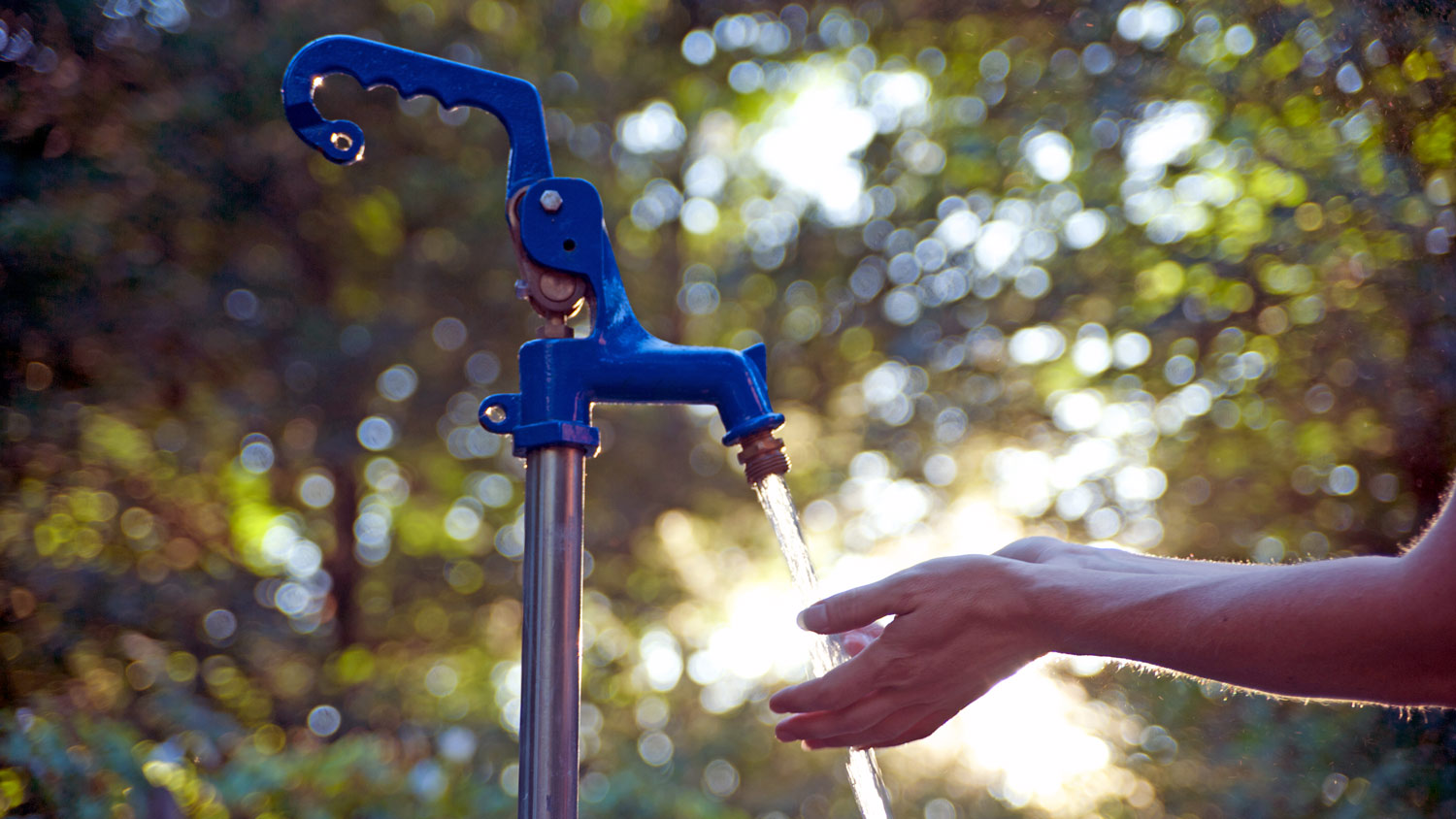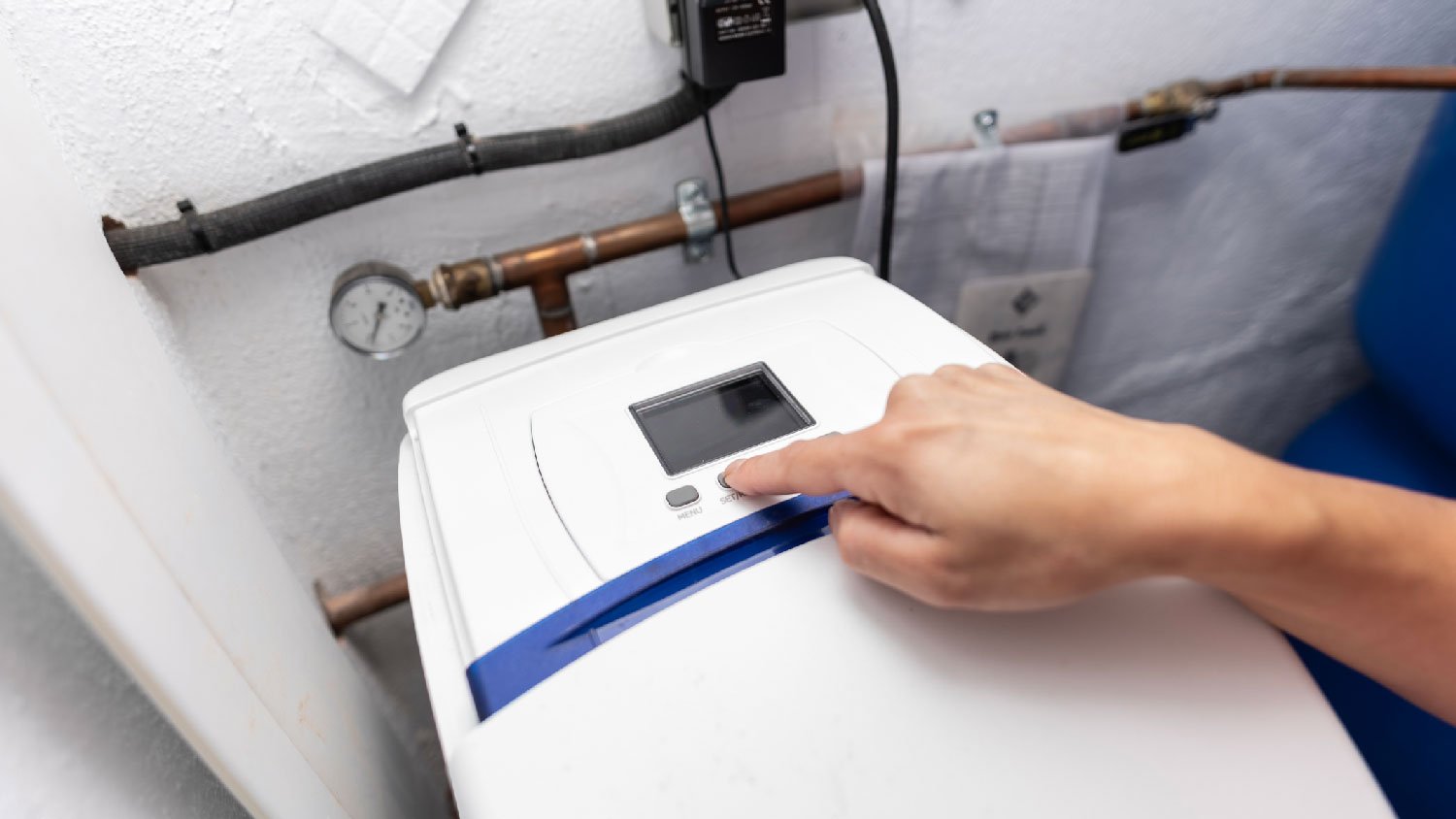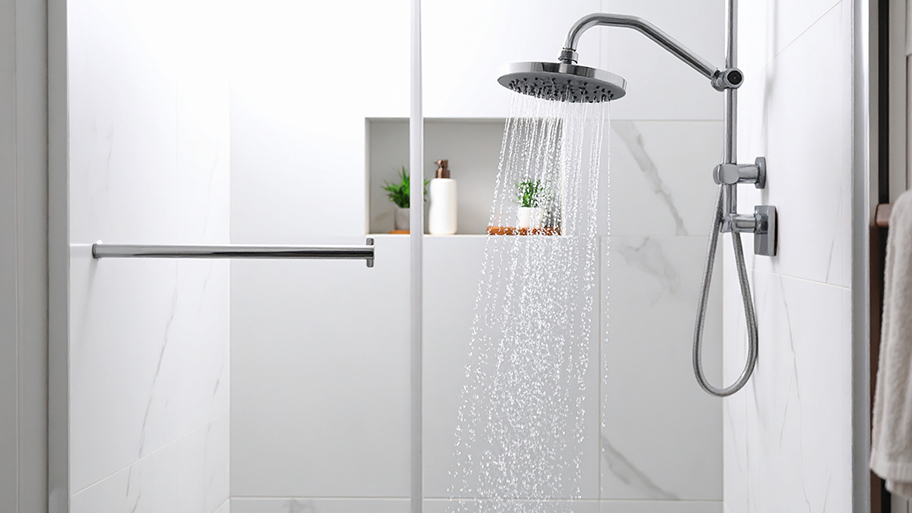
Discover how much well water treatment systems cost, including installation, maintenance, and tips to save. Get expert insights to plan your water system project.
Forgetting to turn off your water softener can make life extra hard


A water softener is a filtration system that replaces calcium and magnesium minerals with sodium.
Timed water softeners generally require more attention before traveling.
Running your water softener without water can cause damage to the system.
A water softener repair typically costs $161–$975.
The type of treatment system and the level of damage will impact repair costs.
Hard water can make life difficult, but a water softener eases some of the pain. It can brighten your clothes, cut down on cleaning, and help you save money. But that’s while it’s being used. When your travels take you away from home, should you keep your water softener running even if you’re not there to experience the benefits? Here are three conditions to consider for turning off your water softener when on vacation.
A water softener is a water filtration system that removes hard water minerals—calcium and magnesium—and replaces them with sodium. Water hardness is measured by the amount of dissolved calcium and magnesium in water, so if your water is high in these minerals, it’s classified as hard water.
In the water filtration system, sodium-saturated resin beads sit at the bottom of a tank. A water softener works once hard water enters the unit. The calcium and magnesium minerals attach themselves to the resin beads, and the sodium from the beads enters the water, successfully replacing the minerals and making the water “soft.”
And while hard water is invisible to the eye as water streams out of your faucets and shower heads, you may notice its effects elsewhere. It leaves behind a filmy residue even after washing your hands with soap and water. Your glassware likely looks cloudy instead of clear. Hard water has the potential to dry out your skin and hair.
Unchecked hard water causes more problems than dry skin and unclean dishes. Mineral buildup can damage your pipes. Hard water can increase your water bill by forcing your plumbing system to work harder. Water softener works wonders on your home when actively using water, but what about when you’re not home? If you’re going on a week-long trip or have planned a month-long extended stay, there are a few conditions where you might consider turning off your water softener system.

As water passes through the filtration system, the resin beads used for filtration eventually become saturated with minerals. At this point, you’ll think you’re getting “soft” water, but it’ll actually be a little rough around the edges. The regeneration process restores the sodium to the resin beads so the system works properly. Water softeners either use a metered system or a timed system for regeneration.
A metered system regenerates based on water usage. It calculates how much water has passed through and automatically triggers regeneration after a set amount. A timed system regenerates according to a set schedule, but it poses a few problems. If the scheduled intervals are too close together, this can cause too much sodium in your water. If the intervals are too long, hard water could enter your pipes before the next scheduled regeneration.
While you’re away, you don’t have to worry about turning off your unit with a metered water softener. If you’re not using water, your system won’t regenerate. With a timed system, your water softener will regenerate if it’s scheduled to.
A system regeneration without water can lead to water softener problems and potentially damage your unit. The cost to repair a water softener typically costs between $161 and $975, but depending on the type of system and the extent of the damage, it could cost as much as $2,500. So if you’re headed out of town, it’s better to be safe—and turn off your water softener—than sorry.
How long are your travels? If it’s less than two weeks, you can leave your water softener as is. If you’ll be gone for longer, consider turning the system off. Water softeners are meant to run. They’re not meant to be idle.
For extended travels, it’s recommended to turn off your water. Doing so can prevent leaks and water damage while you’re gone. Shutting off your water cuts off the supply to your water softener, and like we said—a running water softener without running water can damage your unit. On average, water softeners last between 10-15 years, but regular care and maintenance can add a few extra years to their life.
During the winter, some homeowners escape the cold and travel to warmer temperatures. Common steps when traveling include turning off the lights, powering down the HVAC, and setting your alarm system. If you’re saying goodbye to freezing temperatures, you’ll also need to focus on water treatment equipment like your water softener.
Without proper insulation, your water softener can freeze. And if your pipes are weak, you’ll be coming home to burst pipes, water damage, and possible electrical issues. Instead, turn off your water softener. Go the extra mile, and drain the tank while you’re at it. This will keep the tank from freezing while you’re gone.
Turning off and draining your water softener is a DIY-friendly project, but if you don’t have the time—especially in the days leading up to your vacation—schedule an appointment with a local water softener specialist.
Chaz, the owner, was very responsive and he communicated with us throughout the entire process. The overall cost was in the middle compared to the three estimates we received. The installation crew was very professional. Chaz was considerate enough to send a crew back to our home to repair...
I've used Quality Drain Solutions multiple times and they are consistently excellent in terms of their level of service and quality of work. They respond quickly, arrive when they say they will, and clean up when they're done. They removed the leaky water heater, and replaced it with a new...
They unclogged the drain and sent me a bill for more than 4 times what I paid before. I called the Water Works to ask why the bill was so high and that they should have gotten my authorization before assuming they could make expensive decisions like that on my behalf and for their benefit....
I was called back immediately when I contacted this provider on Angie's list. Robert called ahead and arrived when he said he would. After looking over the appliance, explained what he thought the problems might be and worked on them. He fixed the problem at the bottom of the freezer that...
Great!, Was able to get them to show up within 2 hours of calling, which was very much needed. Had a new refrigerator delivered that could not be installed. The main water shut off to my house and the shut off to the old refrigerator could not be turned off. Water was leaking everywhere...
Everything was great. They installed a new motor on a Wednesday and it heated ok for a day, which they did not charge me for. They came back out on Saturday and said that it was admitting Co2. They had to shut it down for safety. They made an appointment to come out Sunday. They made an...
From average costs to expert advice, get all the answers you need to get your job done.

Discover how much well water treatment systems cost, including installation, maintenance, and tips to save. Get expert insights to plan your water system project.

Water softener repair costs can add up, but they’re almost always worthwhile. Use this guide to see what your project is going to cost before you get started.

Wondering about water treatment system costs? Learn average prices, key cost factors, and ways to save on installation and maintenance for your home.

Water softeners last up to 25 years, but maintenance, usage, and other factors can affect the life span. Learn more about how long water softeners last.

There are many pros and cons of salt-free water softeners that could impact your decision to buy one. Stay tuned to learn more about salt-free water softeners.

What is a water filter and why do you need one? Here’s how they work and how to choose the best water filtration system for your home.